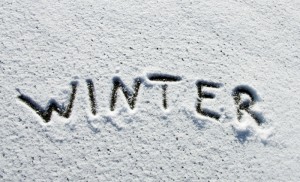How Winter Weather Affects Your Chimney
Weather experts have forecasted a winter just as frigid as last year’s, which has everyone thinking about ways to stay warm. For some, that means turning on the heat in the house or lighting a toasty fire in the fireplace. To help the fireplace and chimney continue keeping us warm, they need regular care themselves, particularly before the winter weather sets in. In fact, winter weather does more damage to the chimney than any other season.
Many people believe chimneys are built to endure the winter elements and only need the occasional sweep to function properly. Chimneys do hold up remarkably well to the weather, considering they experience it 24 hours a day, but they cannot survive indefinitely without a little help. The main concern for chimneys in the winter actually comes from water damage, which often surprises people.
Masonry chimneys, in particular, can suffer extensive and costly damage as a result of water exposure in the winter. Materials such as brick, concrete, and mortar are used to build a masonry chimney and they all have a porous texture. This means these materials readily absorb any water that settles on its surface. Although water alone does relatively little damage, when winter weather drags temperatures below freezing, the trouble starts. In sub-freezing temperatures, water undergoes a freeze and thaw cycle in which it continuously contracts and expands. The water inside the masonry materials also goes through this cycle and expands the bricks and concrete right along with it. Water can cause severe and costly damage to a chimney, particularly during to masonry chimneys. After several seasons of this constant motion, the materials start to degrade and lose strength. The damage can even extend to cracking or collapse.
If water has a chance to seep inside the chimney, it will happily cause damage there, as well. A metal flue lining can rust after repeated water exposure, and this leads to cracks and holes in the lining. Damaged flue lining does not effectively protect the house from the heat of the fire and the water leaking into the chimney. Eventually, this can lead to an unintentional house fire or to further water damage in the house. Water damage may come in the form of a rusted damper, which inhibits the proper ventilation of the smoke, or may even appear as ugly water stains on the walls or ceiling around the fireplace.
Fortunately, some simple and cost effective fixes can prevent all of this expensive damage. At the next chimney sweep and inspection, ask the chimney specialist about the application of a special sealant to the outside of the chimney. A chimney cap or chimney crown repair or replacement can help keep water out of the chimney and house, too. The chimney specialist can provide and install these fixtures for you upon request. With winter closing in, the roof is going to start icing up, soon making it too dangerous for the chimney specialist to access the chimney, cap and crown. Therefore, you should call now to schedule an appointment to have your chimney protected this winter. If you live in the area of Suffolk County on Long Island, contact Chief Chimney Services, Inc. for a professional consultation.

